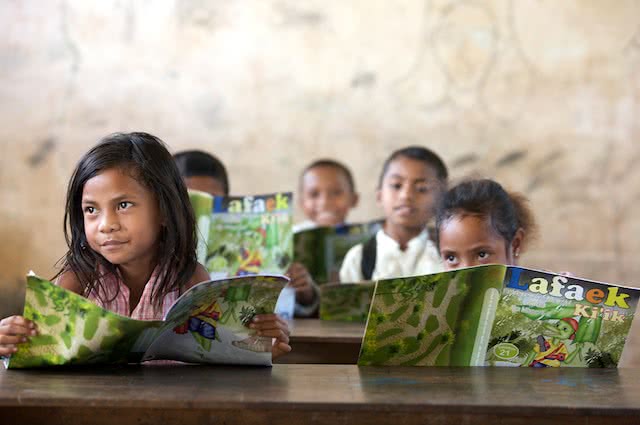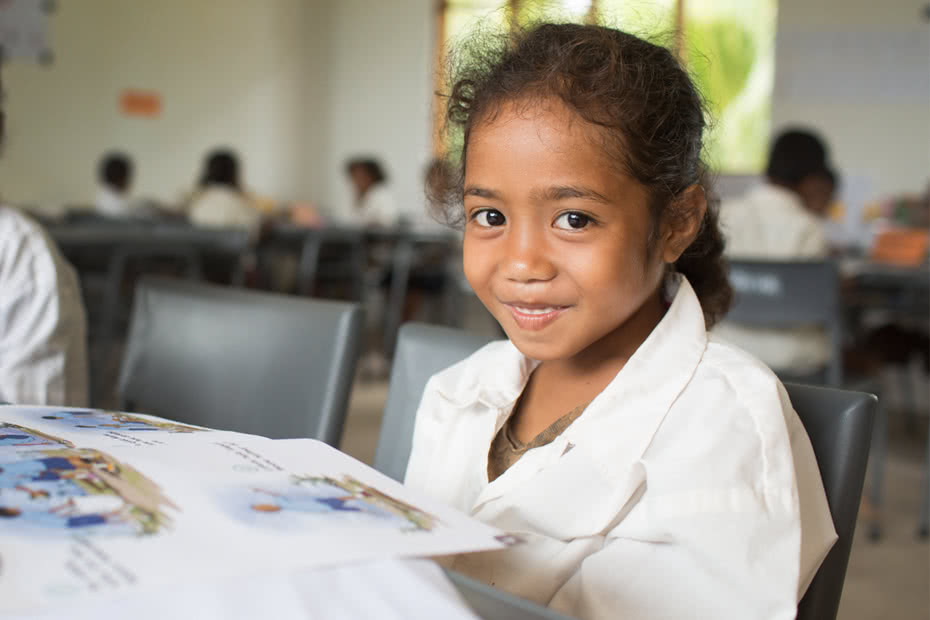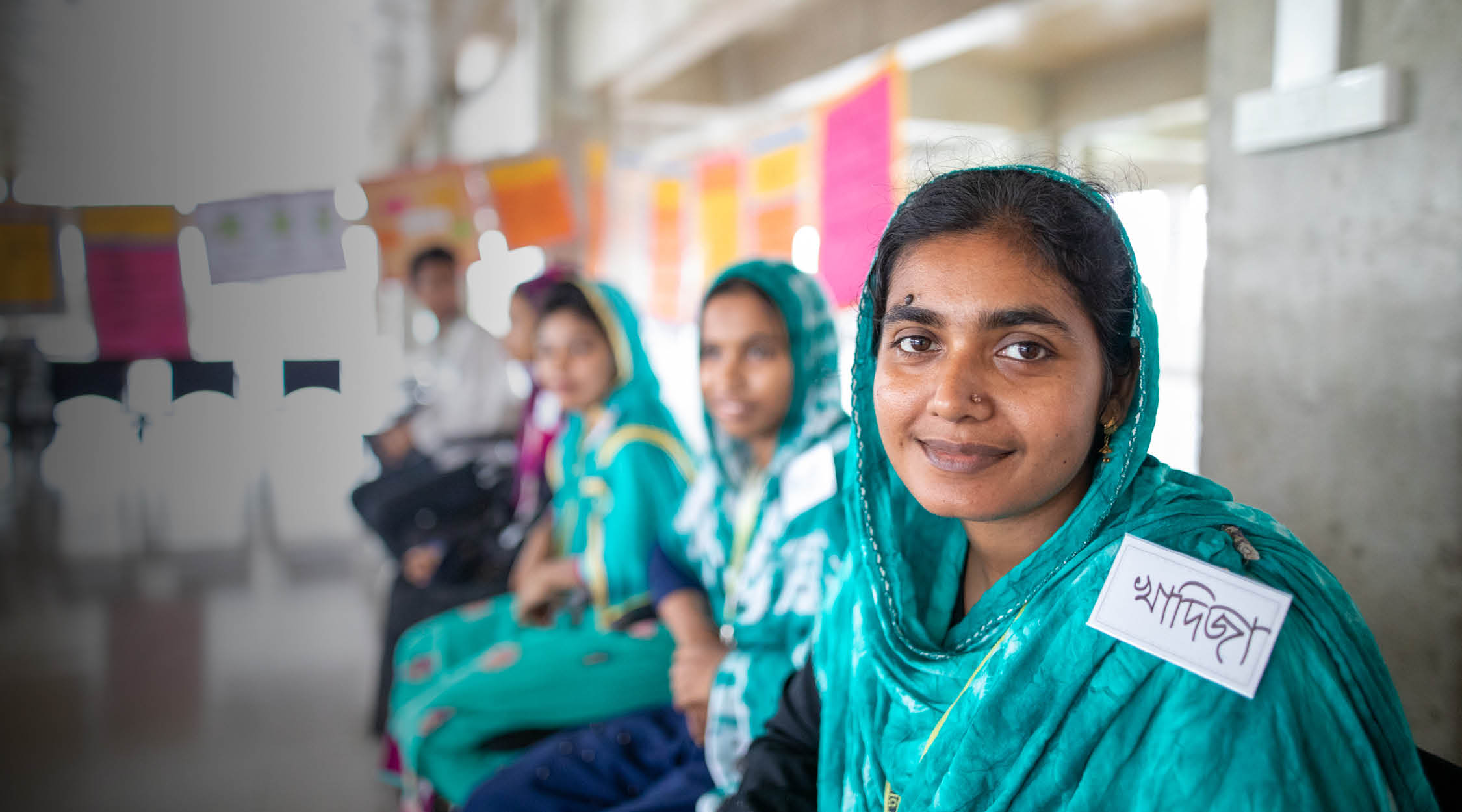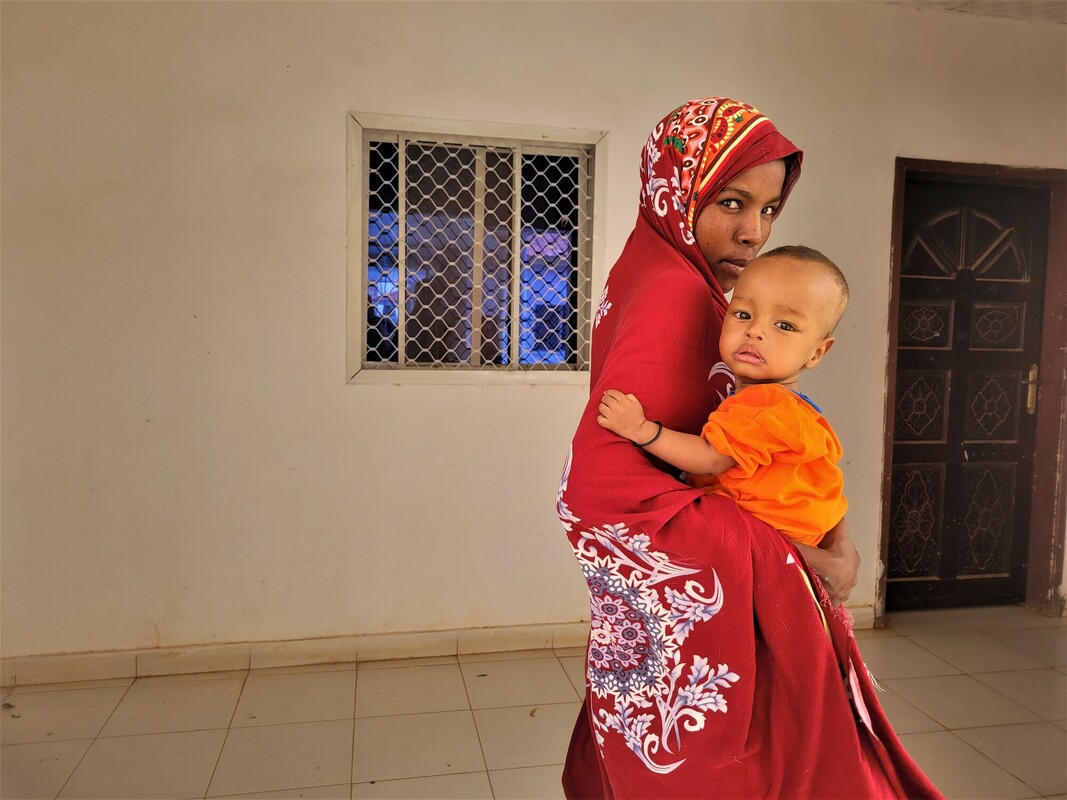CARE Australia’s Takara Morgan spoke about youth, education and CARE’s programs at the Oaktree Foundation’s event ‘The Future of East Timor’ on 2 October 2012.
Education in Timor-Leste
I first visited Timor-Leste in 2008 when I stayed with a local family and conducted some research in Ainaro on education, particularly around language. From this research I began to gain a deeper understanding of some of the education challenges facing Timor-Leste. These well documented challenges include lack of funding for books, classrooms, equipment, well trained teachers, a good curriculum, water facilities, electricity and road access.
Timor-Leste is a multilingual society with at least 19 languages spoken throughout the country. The official languages of Timor-Leste are Tetum and Portuguese, with English and Bahasa Indonesia recognised as important working languages. The selection of the language of instruction in Timor-Leste is one of the most challenging and contentious decisions facing education policymakers, since it has far-reaching effects and implications. The role and status of languages in the Timor-Lesteese school curriculum has dominated debates about educational quality since independence.
With the challenges faced in the education sector and external factors such as food shortages and family circumstances, there is often low enrolment and high dropout rates. As a result, many youth often finds themselves on the street without a complete education and often without a job. Given the post-conflict context of Timor-Leste, this can lead to trouble unless youth are given direction and the opportunity to gain some skills which will enhance the likelihood of them gaining employment.

Timor-Leste today
Despite the challenges, there are many opportunities for this young nation. Democratic elections were recently held without major incident and the Government of Timor-Leste including the Ministry of Education are open to discussing development issues and how they can be addressed. Infrastructure continues to improve with ongoing road rehabilitation and electrification works helping to make basic services available to more people. In fact, I once joked with a colleague that I actually could get better mobile phone reception in rural Timor-Leste with Timor Telecom than with an unnamed telecommunications provider in Canberra’s inner north – suffice to say I have since changed providers.
Seriously though, it is amazing the changes I have noticed since I first went to Timor-Leste in 2008. Back then we drove past internally displaced people’s camps when going in to town, I helped my home stay family wash clothes in a UNHCR bucket, my classroom was often under a tree in the school compound with a blackboard on a chair leaned up against the tree trunk as there were insufficient buildings to house the classes, and I vividly remember my taxi getting stuck in a pot hole on my way to Tetun class. Now, the IDP camps are gone, you only see the odd UNHCR tarp which thrifty locals are using as house extensions or little garages. Businesses are popping up and roads are improving. However, there is still a lot to be done to improve access to basic infrastructure and services particularly outside Dili and especially in the more remote parts of the country.
There are many choices that will need to be made in the future to steer Timor-Leste in the right direction – that is why educating youth is so important as they are the ones that while ultimately drive the development of Timor-Leste forward in the future.
CARE in Timor-Leste
In the AusAID-funded Young Women, Young Nation project, parent-teacher associations are taught about the importance of education and events are held to publically acknowledge parents who participate in their children’s education and encourage them to complete their schooling. This public acknowledgement empowers other families to also encourage girls and boys to go to school. It is one thing to get students to attend but if they do not enjoy school then they are not getting the most from their learning experience/education. CARE is also working with the Ministry of Education in select schools to make schools more welcoming through the provision of water and construction of toilets.
CARE’s USAID-funded School Dropout Prevention Project aims to identify the causes of student dropout and then work with schools to reduce dropouts by changing attitudes and behaviours towards education among families and communities.
As mentioned earlier, language of instruction is a crucial issue in Timor-Leste. Some of you may have attended Kirsty Sword Gusmao’s recent talk over at the John Curtin Medical School where she talked about the Mother Tongue-Based Multilingual Education Project. CARE, with support from the Harold Mitchell Foundation and in partnership with the Repete 13 consortium, is currently working on this project, which seeks to introduce local language instruction at the preprimary and primary levels in three districts of Timor-Leste: Lautem, Oecusse and Manatuto. The project seeks to improve the quality of learning outcomes by encouraging students and teachers to use their own languages in their teaching and learning process and building a good bridge to the national languages. The Consortium is achieving this through: 1) improving capacity of teachers in pilot schools to teach in mother tongue; 2) getting community members, especially parents who may not speak the school language to take an active role in their children’s education (for example by activating parent teacher associations); and 3) creating and accessing resources in the mother tongue (as a number of the languages are mainly spoken agreeing on an written alphabet is an interesting process – they go out to the community and get some butchers paper and decide on L for leaf. They then take all this back to Dili and publish it to make resources.)
In December 2000, CARE started producing a children’s magazine called Lafaek to promote child rights in Timor-Leste. Following its early success and considering the lack of print material available in schools at the time, in 2004 the Ministry of Education and CARE collaborated to continue to produce the magazines as the curriculum supplement materials. Four type of magazines were produced bimonthly, a teacher guide, pre-primary to grade 2 primary school, grade 3-4 primary school and grade 5 to pre-secondary school magazines. These magazines were distributed to primary schools throughout the country. Now, the magazine which is currently funded by NZAid has become a community magazine with a ‘did you know’ section (where various forms of messaging can be placed), a section on managing finances, let’s count, agriculture, kids section, learning to read and write, and a story telling section.
Helping girls get an education: Young Women, Young Nation
Girls are usually the first to be taken out of school, with parents often prioritising a boy’s education over a girl’s. Yet, when a girl completes primary school, she is more likely to have children later, send her own children to school, have a healthier family and earn a greater income. This is why CARE is working to increase the value of girls’ education in communities in Timor-Leste, and removing the barriers that prevent girls from going to school and staying there, including by providing water and toilet blocks.
Once in school, the girls are encouraged through the introduction of activities like traditional dancing, singing, sport and quizzes to help them build their confidence. CARE also produces books with stories about positive female role models for the girls to aspire to.
Developing the vocational skills of youth: Youth centres
CARE has strong ties to the community of Bairo Pite in Dili, having acted as a refuge during the 2006 crisis and conducting peace-building and youth empowerment work in the years that followed. CARE realised that for young people to participate meaningfully in their communities, they needed increased educational opportunities and access to employment through services.
With support from AusAID’s Australian NGO Cooperation Program, Count Charitable and the Greenlight Foundation, CARE supports the Bairo Pite Youth Centre. The centre is one of 5 established in 2008 with an overall goal of improving the coping strategies for conflict-affected youth following the end of the 2006 urban crisis. CARE has been supporting the centre since 2010. The Bairo Pite Centre is one of only 13 government accredited national vocational training centres.
Students are 15-30 years old and have dropped out of school or have not been able to complete formal primary or secondary education. Many of these young people had to leave school due to civil conflict, to care for family members or to provide household labour. In many instances they are heads of household or single mothers.
A large number are at risk of being enticed into anti-social activities, martial arts groups or other non-productive activities. That is why these centres and the vocational training courses they provide are so important.
Students must initially complete the Youth Centre’s 5 ½ month Foundation course (High School Equivalency) which involves education in life skills, literacy and numeracy, basic English, human rights and peace building, hospitality, tourism, agriculture and administration before undertaking one of the national accredited courses in Hospitality (Certificate I & II) and Administration (Certificate I & II). Courses include a work placement at a prospective employer which is a highlight for the students as they put their skills to practice and build up vital networks.
It’s easy to see why the students enjoy coming here, away from the streets of Dili where idle youth often wander and hang out. The Centre exudes a feeling of warmth and safety; there are smiles and friendly chatter amongst the flourishing gardens tended by the agriculture students and the delicious smells wafting from the hospitality kitchen.
The students put their newfound business skills to use by making the items they produce available to the public for sale – including biscuits and cakes from the hospitality students, and organic pesticides and fertilizers from the agriculture students.
The students are provided with a nutritious breakfast and lunch every day at the Centre at no charge, a huge source of motivation for them to attend every day. The food is prepared on site in the hospitality kitchen by a male kitchen–hand, a deliberate choice by the administrators to try and break down gender stereotypes that are still prevalent in Timorese society.
I want to develop my skills, so I can develop my future, so I can develop my country
I would like to leave you with a quote from one of the girls I spoke with at the Youth Centre. Her name has been changed to protect her privacy but her words have left a lasting impression on me and I thought were particularly appropriate for tonight. When asked what she wanted to do after completing her administration course she replied emphatically, ‘I want to develop my skills, so I can develop my future, so I can develop my country.’
For me this was really powerful, and demonstrated the importance of investing in youth and education in Timor-Leste. Ultimately, youth are the future of Timor-Leste so we need to ensure they have the skills and education to fight the underlying causes of poverty and to develop their nation.
Find out more about CARE’s work in Timor-Leste.


